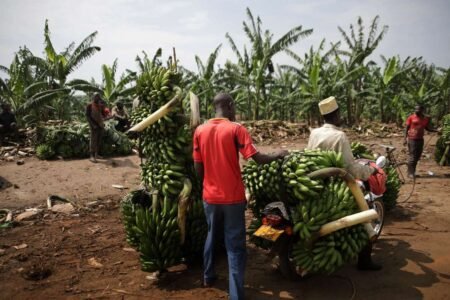The 2002 Monterrey Consensus is the partnership between developed and developing countries to find ways of financing development that will meet the Millennium Development Goals. The EU, which provides over half of all official development assistance worldwide, made a number of commitments to achieve this consensus.
Advertisement
EU Commitments:
- The EU agreed to increase its official development assistance to achieve 0.39% of gross national income (GNI) by 2006 (as a step towards the 0.7% target set by the UN). This collective pledge was based on individual promises by some member countries to donate at least 0.33% and others to maintain their already high(er) aid levels.
- Other commitments concerned innovative sources of financing, more predictable and stable aid mechanisms, debt relief, aid effectiveness, untying aid, aid for trade, reform of international financing institutions and global public goods.
In 2005 the EU made additional commitments to collectively reach official development assistance of 0.56% of GNI by 2010, underpinned by an individual target of 0.17% for the 12 newest member countries and 0.51% for the others, with those countries that have already reached their targets keeping higher aid levels. The new commitments include helping mitigate external shocks that cause poverty, and making aid more predictable.
In its joint position for the Doha Follow-up International Conference on Financing for Development the EU has further broadened its commitments, which now also cover areas like good governance in the tax area, customs cooperation, fight against corruption and illegal financial flows, the development impact of remittances and the financing of new, especially environmental challenges, namely climate change.
The Doha conference while preserving the commitments of the Monterrey Consensus, aimed to evaluate progress and find ways to face new challenges and emerging issues, as reflected in the Doha Declaration 2008 that was adopted by consensus. The conference also decided the organisation of the UN Conference on the World Financial and Economic Crisis and Its Impact on Development (June 24-26, 2009), for which the EU adopted a framework for a joint position.
EU Performance: Doing More, Better, Faster
Since 2003, the Commission has been tracking Europe’s performance on these commitments in an annual Monterrey Report. Europe is for the most part meeting its commitments: aid levels increased by more than 30% from 2004 to 2005, and the target of 0.39% GNI in 2006 was exceeded with a record 47.7 billion in official development assistance (0.41% GNI), or 100 per European citizen. After a decline in 2007 (45.7 bn; 0.37% of GNI) EU aid increased again to 49.5 bn in 2008 (0.40%) and according to forecasts and despite the prospect of economic contraction – should further rise in 2009. Reaching the aid levels (collective and individual) pledged for 2010, will be a major challenge and require determined action of EU Member States. While several European countries have consistently increased their aid since 2002, others show ups and downs and Greece, Italy and Portugal are still below the minimum commitment foreseen for 2006.
Based on existing commitments, OECD forecasts suggest that the EU will contribute 76% of the global increase in official development aid from 2008 to 2010. The EU will also provide more than 75% of the G8 pledge for Africa (2004-10).
Europe also supports innovative sources of finance for development, including:
- air ticket taxes,
- the international drug purchase facility (UNITAID),
- advanced market commitments (AMCs),
- the international finance facility for immunisation (IFFImm).
It has made considerable progress on aid effectiveness and aid for trade commitments.
Source: European Commission


